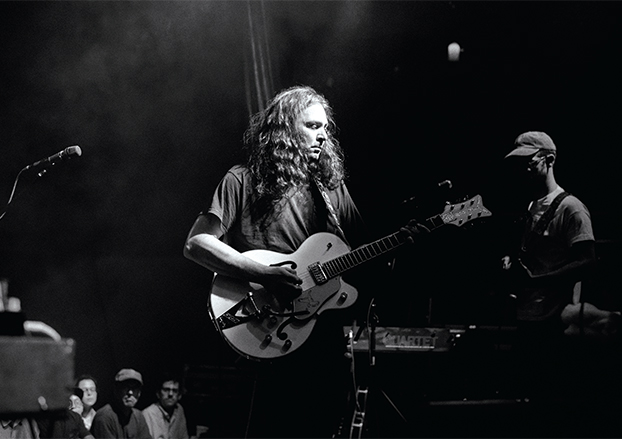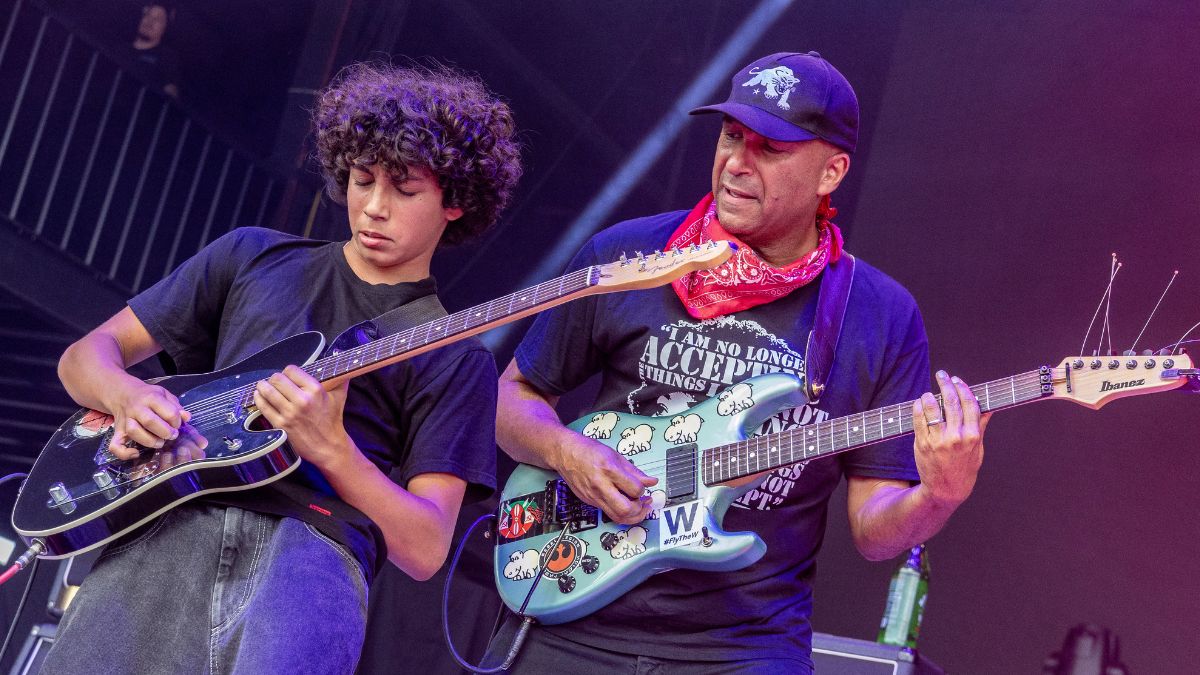The War on Drugs Gain 'A Deeper Understanding' of Their Craft

It’s been three years since Philadelphia-based rock act the War on Drugs released their breakthrough album, Lost in the Dream, though singer, guitarist and songwriter Adam Granduciel has hardly been dormant in the ensuing period.
“We finished touring on that record in October 2015,” he says, “and by December I was pretty much moved into my new studio in Los Angeles and starting to write heavily again. All in all it was about two-and-a-half years of writing and about a year-and-a-half of actively recording.”
The result is the new A Deeper Understanding, the War on Drugs’ fourth full length and perhaps their most fully realized effort yet.
Over the course of their first three albums, Granduciel and the band—which consists of a somewhat loose configuration of musicians, and in its earliest days included fellow Philadelphian Kurt Vile in a co-writing and co-guitar position—staked out a distinct corner of the modern music world with an approach that was definitively guitar-centric and classic-rock based but also bolstered by pulsating keyboards and synths, metronomic drums and impressionistic, plainspoken vocals, all of it blending into a swirling, atmospheric miasma of sound to produce a sort of ambient Americana.
On A Deeper Understanding, the songs are even more open and expansive (see the 11-minute centerpiece, “Thinking of a Place”), with Granduciel leaving plenty of space to unspool the type of sprawling, and sometimes squalling, exploratory guitar solos that have become his trademark.
As for where his guitar influences sit, Granduciel says, “It’s guys like Neil Young, Jeff Tweedy, and even someone like Sonny Sharrock, who had these really wild, dark tones. Players that are real free.”
Despite the somewhat improvisatory nature of his playing, Granduciel’s songs usually don’t stem from jams. Rather, he tends to compose on his own and bring in additional musicians later in the process. “I kinda just write, and I use the instruments and the colors I like to use, whether it’s drum machines, guitars, whatever,” he says. “For certain material, the process of being alone, you end up with stuff you’re not gonna get with six people in the room. So I just chip away at the songs.”
All the latest guitar news, interviews, lessons, reviews, deals and more, direct to your inbox!
That said, with A Deeper Understanding, he adds, “I also wanted to make a record that feels like what it feels like to be in the room when we’re playing. I wanted something a little bit more powerful, sonically, than other records we had made. And I think we got there.”
AXOLOGY
● GUITARS 1972 Gibson Les Paul Deluxe, Gretsch White Falcon, Fender Jazzmaster reissue, 1964 Fender Jaguar, 1966 Gibson SG Standard, 1980s Squier Stratocaster
● AMPS 1965 Fender Super Reverb, Gibson GA-8 “Gibsonette,” Gretsch, Fender Vibro Champ “drip edge,” Fender Princeton, Fender Bassman blackface, Hiwatt, Marshall Specialist
● EFFECTS Jesse Trbovich custom fuzz pedal, JHS Bun Runner, Electro-Harmonix Memory Man, Roland Chorus Echo, Strymon Flint tremolo and reverb, MXR Custom Audio Electronics Boost/Line Driver, JHS Colour Box, Moog Moogerfooger Cluster Flux, Electro-Harmonix Electric Mistress
Rich is the co-author of the best-selling Nöthin' But a Good Time: The Uncensored History of the '80s Hard Rock Explosion. He is also a recording and performing musician, and a former editor of Guitar World magazine and executive editor of Guitar Aficionado magazine. He has authored several additional books, among them Kurt Cobain: Montage of Heck, the companion to the documentary of the same name.

